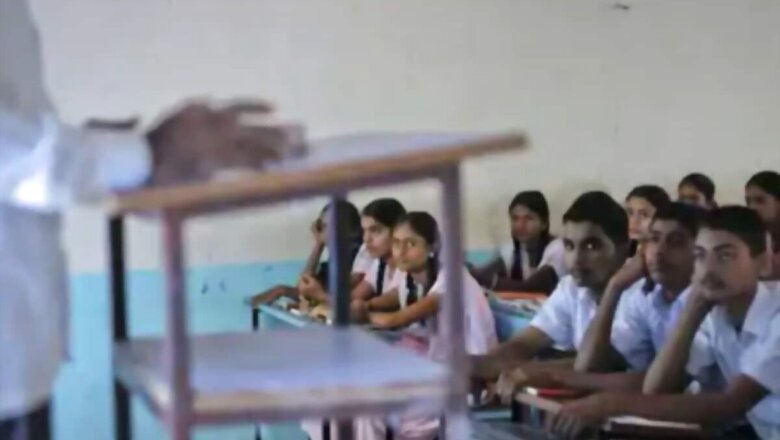
views
Days after a row over omission of Chinese language from the list of foreign languages to be taught at school, the New Education Policy is being questioned for the absence of Urdu from its list of Indian languages.
On Wednesday, former minister of finance and external affairs Yashwant Sinha wrote on Twitter, “Urdu is not even mentioned in the NEP.” He further said, “Congratulations to the Prime Minister Modi. The New Education Policy does not recognize Urdu as an Indian language.”
The NEP 2020, recently announced by the Ministry of Education to bring about reforms, has courted several controverises over the languages mentioned in it. The ministry has clarified in the past that the names listed have been mentioned as mere examples.
Clarifying on the inclusion of Urdu, the ministry said that the new policy includes the languages mentioned in the Eighth Schedule of the Constitution.
“This statement is totally false and mischievous. Para 4.12, 22.6 and 22.18 of NEP talk of all languages mentioned in the Eighth Schedule of the Indian Constitution, which includes Urdu. Incidentally, what is being deliberately and mischievously suppressed is that these paras do not talk of Hindi also, rather all languages of the Eighth Schedule are mentioned,” secretary of higher education Amit Khare told News18.com.
The NEP stresses in paragraph 4.12, “There will be a major effort from both the Central and State governments to invest in large numbers of language teachers in all regional languages around the country, and, in particular, for all languages mentioned in the Eighth Schedule of the Constitution of India. States, especially States from different regions of India, may enter into bilateral agreements to hire teachers in large numbers from each other, to satisfy the three-language formula in their respective States, and also to encourage the study of Indian languages across the country. Extensive use of technology will be made for teaching and learning of different languages and to popularize language learning.”
In 22.6 it has emphasised, “Moreover, even those languages of India that are not officially on such endangered lists, such as the 22 languages of Eighth Schedule of the Constitution of India, are facing serious difficulties on many fronts. Teaching and learning of Indian languages need to be integrated with school and higher education at every level…”
Further, in paragraph 22.18, the NEP states, “For each of the languages mentioned in the Eighth Schedule of the Constitution of India, Academies will be established consisting of some of the greatest scholars and native speakers to determine simple yet accurate vocabulary for the latest concepts, and to release the latest dictionaries on a regular basis (analogous to the successful efforts for many other languages around the world).”
These Academies for Eighth Schedule languages will be established by the Central Government in consultation or collaboration with State Governments. Academies for other highly spoken Indian languages may also be similarly established by the Centre and/or states.
The NEP has proposed to expand institutes and universities for study of classical languages and literature, with strong efforts to collect, preserve, translate, and study the tens of thousands of manuscripts that have not yet received their due attention. It has also proposed that a new institution for languages will be established. The National Institute (or Institutes) for Pali, Persian and Prakrit will also be set up within a university campus.
Interestingly, Sanskrit has been mentioned 23 times in the new policy.




















Comments
0 comment